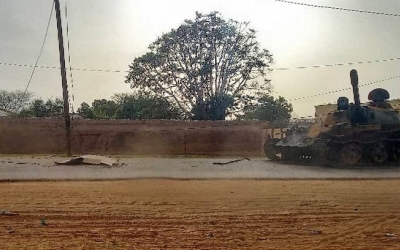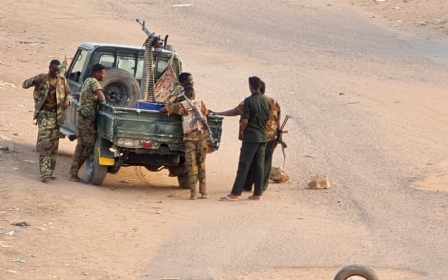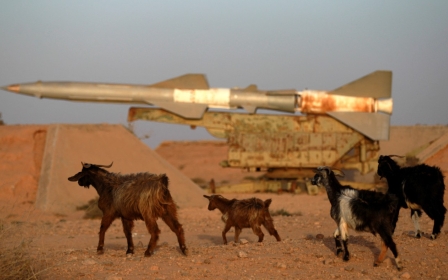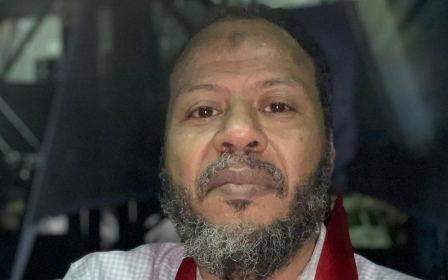UK sanctions six businesses profiting from war in Sudan
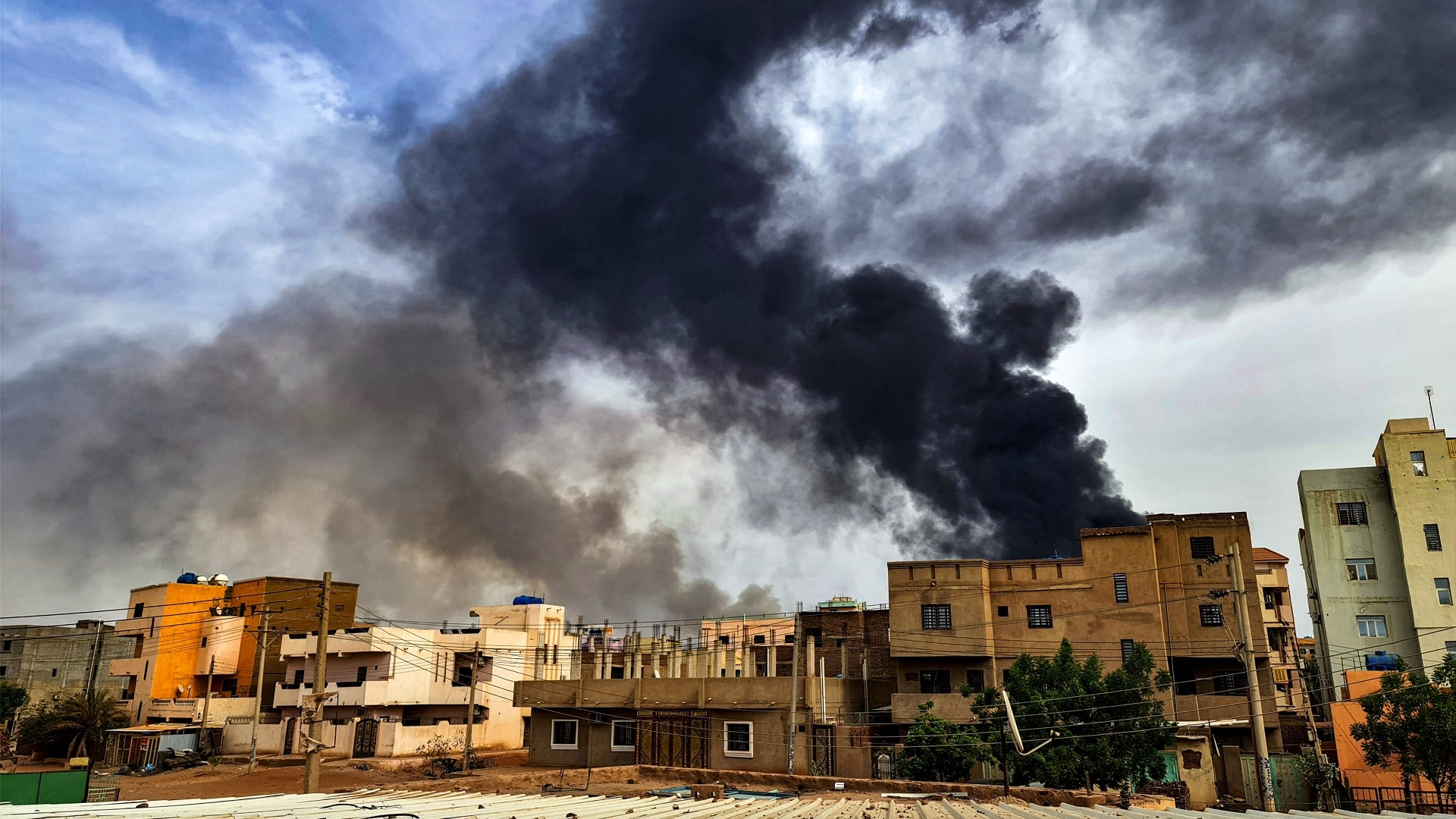
Britain imposed a raft of sanctions on Wednesday on businesses it says are linked to military groups fighting in Sudan.
The sanctions cover six businesses associated with leaders of the Sudanese Armed Forces (SAF) and the Rapid Support Forces (RSF), which have been at war with one another since 15 April.
Three of the commercial entities targeted are connected to the army and three to the paramilitary RSF.
The move by the British government follows the announcement by the United States at the beginning of June of its own sanctions, which targeted four commercial operations. All four of these are included in the UK sanctions.
In a statement, the British government said the measures would cut funding to the two sides and allow the parties to engage in a peace process, as well as facilitate access to humanitarian aid.
New MEE newsletter: Jerusalem Dispatch
Sign up to get the latest insights and analysis on Israel-Palestine, alongside Turkey Unpacked and other MEE newsletters
"These sanctions are directly targeting those whose actions have destroyed the lives of millions. Both sides have committed multiple ceasefire violations in a war, which is completely unjustified," said James Cleverly, Britain's foreign minister.
"Innocent civilians continue to face the devastating effects of the hostilities, and we simply cannot afford to sit by and watch as money from these companies, all funding the RSF or SAF, is spent on a senseless conflict," he said.
Sanctioned companies associated with the RSF include al-Junaid, which the British government said has provided "at least tens of millions in financial backing for the militia," as well as GSK Advance Company Ltd, and Tradive General Trading.
Vehicles 'retrofitted with guns'
Tradive is based in the UAE and is controlled by Algoney Hamdan Dagalo, the younger brother of RSF leader Mohamed Hamdan Dagalo, who is better known as Hemeti.
The US Treasury described Tradive as "a procurement company that has purchased vehicles for the RSF in the past". Some of these vehicles have been "retrofitted with machine guns" for use by the paramilitary force.
Defence Industries Systems (DIS), Sudan Master Technology and a unit of DIS, Zadna International Company for Investment Ltd, were targeted as entities associated with the army, the UK's statement said.
The entities are all part of Sudan's military-industrial complex, which has enabled the army to control large parts of the country's economy.
DIS manufactures a range of small arms, conventional weapons, ammunition and military vehicles for the SAF, according to the US government.
The company "uses a complex system to hide its ownership of these subsidiaries and to obtain favourable letters of credit from the Sudan Central Bank", the US Treasury said in June when it announced its own sanctions.
According to the UN, more than 2.8 million people have been displaced by the war in Sudan, including over 2.2 million inside the country and nearly 615,000 that have crossed the border into neighbouring countries.
There have been reports of "alarming numbers" of rapes, sexual assaults and abductions of women and girls, some as young as 12, by fighters, according to aid agencies.
Save the Children said on Friday that at least 88 cases of rape have been verified since the conflict started.
Middle East Eye has reported on sexual violence and rape in Darfur, as well as on the accumulation of rotting dead bodies in el-Geneina, the capital of West Darfur state.
In el-Obeid, the capital of North Kordofan, which has been besieged by the RSF for at least 50 days, citizens told MEE they were running out of water, food and fuel.
Almost 1,000 civilians have been killed, according to the United Nations, although a number of military sources have told MEE the real figure is far higher.
Previous mediation plans to resolve the power struggle have failed. Diplomatic sources have told MEE that both the army and the RSF believe they can win the war and that while this is the case, chances for peace are remote.
Middle East Eye delivers independent and unrivalled coverage and analysis of the Middle East, North Africa and beyond. To learn more about republishing this content and the associated fees, please fill out this form. More about MEE can be found here.


